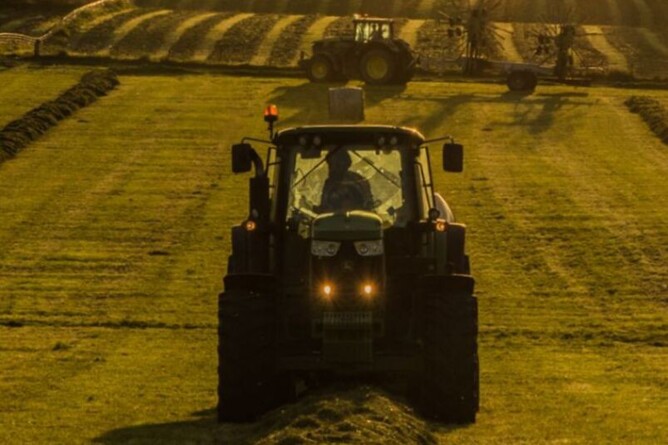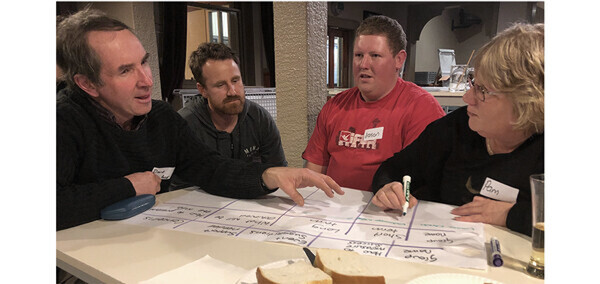Our First Thriving Southland Newsletter
Getting to know each other
For obvious reasons, after the initial launch of Thriving Southland in December, and a huge push through February and March – everything came to a grinding halt as the country responded to COVID-19.
We hope you’re all well and that you had a good lock down. It was a unique time for every person in New Zealand, and really brought home the importance of communities and the support we give each other. For the Thriving Southland team based in Southland, we were humbled by the strong community connections already forged by the Catchment Groups throughout Southland. This is all credit to the three-year NZ Landcare Trust programme supporting Southland catchment groups that wrapped up in June 2020, and the hard work of Catchment Group Chairs and members.
Welcoming our new catchment coordinators
We’re delighted to have our four catchment coordinators on board and they’ll be on the ground after calving and lambing to talk about developing project plans in respective catchments. You may know Sarah Thorne and Julia Christie already and we’ll profile all four in an upcoming newsletter so you can get to know them a bit better.
Great turnout at Thriving Southland Community Events
When we began to ramp up the project again in May and June, we didn’t quite know what to expect. So were thrilled when we had a great turn out at the 10 community get-togethers during June and July with over 200 people attending. It was wonderful to get feedback from farmers and Catchment Group members on how they felt enabled and supported by Thriving Southland.
It’s really clear how much people value their independence to come up with ideas that work for their catchment, but also how they’re keen to engage with more people in their catchments.
Thriving Southland board members Deane Carson and Neil Gardyne updated people from the mid and lower Oreti and Makarewa headwaters catchments at the Middle Pub in Winton on July 21 (see image below).
Meetings were also held in Riverton, Tuatapere, Wairio, Wyndham, Gorge Rd, Woodlands, Gore, Balfour and Mossburn. At each meeting, attendees broke off into groups to brainstorm ideas for projects that would work for their areas. These ideas will be collated and shared with each group by their new project coordinator. At the Winton meeting, we talked about successful projects to draw inspiration from, including the Cane Changer programme in Queensland, which helped cane growers regain their social standing, and closer to home, the Pomahaka Water Care Group.
Inspiring project ideas
The calibre of project ideas was fantastic, reflecting the strong discussions and thinking on the ground. A few themes came through consistently:
- attendees are eager to get on with catchment projects
- they are looking for increased community connections to help strengthen communities
- they want to understand their catchment profile
- they are keen to work alongside people with similar opportunities and challenges
Inspiring project ideas
The calibre of project ideas was fantastic, reflecting the strong discussions and thinking on the ground. A few themes came through consistently:
- attendees are eager to get on with catchment projects
- they are looking for increased community connections to help strengthen communities
- they want to understand their catchment profile
- they are keen to work alongside people with similar opportunities and challenges
"Cool people. Cool ideas. Cool projects."
A focus of the meeting was how to get engagement from people who were reluctant to get involved – for whatever reason. Support is available from Thriving Southland, but it’s ultimately up to each individual catchment group on how they want to tackle the challenge.
It was also clarified that, excitingly, community projects did not need to be solely primary sector based, and the board is encouraging ideas for projects from people in Southland’s urban areas. As shown over the past three-years of progress with Catchment Groups, some Southland communities have strong community ties through schools or other social hubs, but others did not – and catchment groups have amazing potential to bring communities together.
Thriving Southland is also keen to play a role in coordinating useful experts to visit, especially as there are some great opportunities to reduce duplication with other organisations and maximise the opportunities.
The takeaway from the meetings is that Thriving Southland is an enabler for Catchment Groups to achieve what they wanted to achieve, Deane said, “Cool people. Cool ideas. Cool projects.”
Getting our stories heard
Thriving Southland has just launched a new website, facebook and twitter page –
all to bring your great stories, learnings, and achievements to others. Whether it’s to
friends, farmers, other Catchment Groups, community members or stakeholders,
these platforms are an important way of sharing information to those that are interested.
Please take a minute to pop on to the website, and let us know if there is anything you’d find really useful to add. And follow us on facebook and twitter so you can keep up to date on news and events, as well as share your great photos and achievements.
Thanks for taking the time to read our first newsletter, we look forward to being in touch regularly with you.
Take care,
Richard and Ewen
Ewen Mathieson (Thriving Southland Chairman)
Richard Kyte (Thriving Southland Project Lead)



